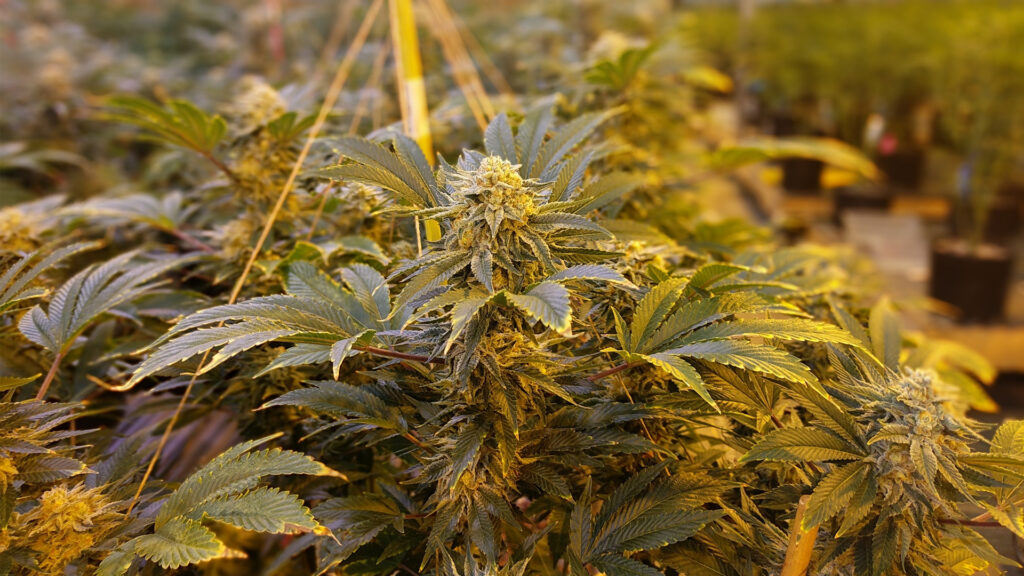By John Michael Pierobon, Tobacco Free Partnership of Broward County
Legalizing recreational marijuana in Florida will be an ecological disaster in ways voters may not fully comprehend.
Growing marijuana has a carbon footprint that easily exceeds most polluting industries. Colorado State University researchers write that the greenhouse gas emissions of Colorado’s marijuana industry (2.6 megatons of carbon dioxide) exceed those of the state’s coal mining industry (1.8 megatons of carbon dioxide). Several studies estimate indoor cannabis cultivation in the United States alone consumes more electricity than 19 entire states.
Growing marijuana requires 40 times the power required to grow lettuce indoors. Even in the Sunshine State, marijuana has to be grown indoors to be commercially viable. Growing marijuana is very energy intensive because it requires at least 18 hours per day of high-intensity lighting such as high-pressure sodium lamps, which are up to 500 times more powerful than normal reading lights, plus tons and tons of air conditioning to optimize growing conditions.

Legalizing recreational marijuana will strain local energy resources, leading to much higher electricity costs for consumers and significantly higher carbon emissions, exacerbating climate change.
Growing marijuana requires twice the water needed to grow grapes. Marijuana is also a nutrient-intensive crop. Wildlife and domestic animals are poisoned by THC-contaminated agricultural waste.
Trespass growers, who are much more prevalent in states that have legalized recreational marijuana, grow marijuana on public lands and on abandoned private lands. They have no regard for the environment, polluting water supplies, damaging fragile ecosystems and depleting resources with no accountability. They are heavy users of pesticides, which make their way into the food chain, posing significant risks to birds and mammals.
A study funded by The Nature Conservancy confirms this. It found that in California, trespass growing “took place largely in areas of environmental sensitivity” and posed “a threat to water quality and habitat in nearby water bodies; near streams and rivers harboring endangered species where diversion of surface or groundwater, or pollution from agricultural chemicals” negatively impacted the environment.
Marijuana plants emit lots of terpene, which is a highly reactive, volatile organic compound and an active ingredient of pesticides. A study published in the scientific journal Atmospheric Environment concluded the magnitude of these emissions impacts local and regional air quality.
In California and New York, people smoke marijuana out in the open, polluting the lungs of innocent bystanders. Secondhand cannabis smoke contains many of the same toxic and cancer-causing chemicals found in tobacco smoke, with some in higher amounts. Another scientific study discovered levels of ammonia were 20 times higher in secondhand marijuana smoke than in secondhand tobacco smoke, and levels of hydrogen cyanide and aromatic amines were three to five times higher in secondhand marijuana smoke than secondhand tobacco smoke.

Between October 2018, when Canada legalized recreational marijuana, and August 2019, an estimated 5.8 to 6.4 million kilograms of plastic cannabis packaging from dried cannabis flower containers alone ended up in Canadian landfills. This figure excludes spent cannabis oil vape cartridges made of plastic and other novel cannabis industry offerings using plastic packaging.
The cannabis industry knows it has a plastic waste problem. It does not want to address it because it would cost them money.
Legalizing recreational marijuana poses a serious environmental threat. The enormous energy and water requirements of cannabis cultivation strain local resources; pollute the air, water and soil; contribute significantly to carbon emissions; and exacerbate climate change. The proliferation of non-biodegradable plastic waste from cannabis packaging further compounds these environmental concerns. Consider the broader ecological impact and vote no on Amendment 3.
John Michael Pierobon is the vice chair of the Tobacco Free Partnership of Broward County, and the chair of the Tobacco Free Environments subcommittee of the Tobacco Free Workgroup of the Consortium for a Healthier Miami-Dade, and an active member of Tobacco Free Volusia. This opinion piece was originally published by the Sun Sentinel, which is a media partner of The Invading Sea.
If you are interested in submitting an opinion piece to The Invading Sea, email Editor Nathan Crabbe at ncrabbe@fau.edu. Sign up for The Invading Sea newsletter by visiting here.




So, let’s start by calling out this article about eco terrorist ammendment 3 in florida. I don’t know your credentials, but your entire article was a carbon copy from a particular pharmaceutical company that used the same bogus “studies”. All has been proven false. If you want to be non partisan, and not push a debunked narrative from a lobbying group. Do your job and fact check your data.